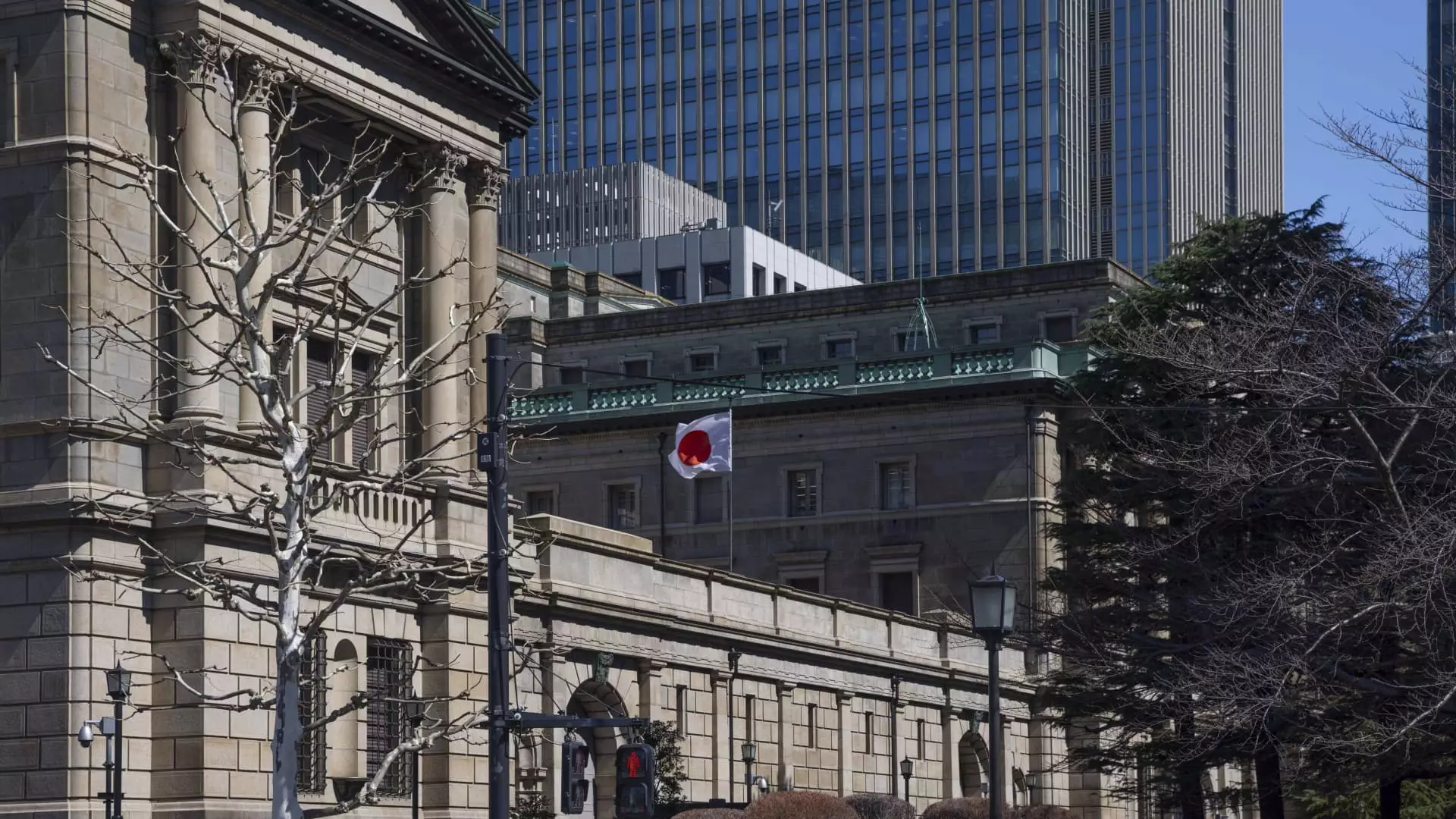Japan finds itself grappling with a critical economic challenge—the alarming decline of the yen. Just as Japan’s ruling party acknowledges the detrimental effects of a weakened currency on household living costs, it becomes increasingly evident that this is not merely an economic inconvenience but a ticking time bomb. As inflation bites harder into the budgets of ordinary families, the urgency for substantial economic reforms is apparent. The ruling Liberal Democratic Party, represented by policy chief Itsunori Onodera, articulates a need for strategic interventions to address Japan’s industrial competitiveness. The undermining of the yen highlights not only a currency management issue but also a stark reflection of Japan’s broader economic vulnerabilities.
The soaring living costs that arise from a weakened yen are not just figures on a balance sheet; they are a reality experienced by millions of citizens who are already stretched thin. Consequently, my concern lies in the government’s failure to prioritize aggressive reformative actions that could bolster both the yen and the economy. At a time when households may have to choose between necessities, this is hardly the result of a government committed to the well-being of its people. Instead of reactive measures, we need proactive policies aimed explicitly at fortifying economic foundations rather than merely stabilizing currency fluctuations.
Negotiations and Political Dynamics: Striking the Right Balance
In the context of bilateral trade negotiations with the United States, Onodera’s statements reflect a broader and seemingly self-imposed constraint on Japan’s economic agency. The notion that Japan should avoid using its significant U.S. Treasury holdings as a bargaining chip is admittedly rooted in diplomatic loyalty but raises serious questions about economic sovereignty. If national economic stability is at stake, can Japan afford to sideline such leverage? The risks of engaging in defensive diplomacy are clear; Japan may continue to bear the brunt of unfavorable trade terms without having the capacity to advocate effectively for its own economic interests.
The political landscape is fraught with complexity. Onodera’s comments highlight the internal struggle within the Japanese government—one that seeks to balance the pressures of U.S. demands with the need for domestically sourced economic solutions. As a center-left liberal observer, I find this tug-of-war troubling. Engaging constructively with the United States must not come at the cost of undermining Japan’s economic needs. Sacrificing our negotiating power for the sake of political niceties implies a disconcerting concession from a nation that ought to prioritize its own citizens.
Interest Rates and Inflation: The Time for Decisive Action
Another layer of complication emerges from the Bank of Japan’s hesitance in adjusting interest rates. The central bank’s ultra-loose monetary policy has not yielded the desired stability and may be further exacerbating the depreciation of the yen. As U.S. interest rates rise, Japan’s inaction on this front is bewildering. The protracted low-interest-rate era may soon be an anchor dragging the economy down instead of a lifebuoy in turbulent waters. It’s crucial that policymakers recognize the necessity for a gradual shift towards more conventional monetary policy—unorthodox measures that once served as economic lifelines may now be the anchors of stagnation.
With the economic stakes as high as they are, Ryoichi Akazawa, Japan’s top trade negotiator, faces monumental challenges ahead. A failure to adopt a stronger monetary policy could dissuade foreign investment and weaken Japan’s stance in upcoming international negotiations. It is high time for Japan to reclaim agency over its monetary policy—not just to stabilize the yen but to affirm its role in shaping the global economic landscape.
Reflections on Japan’s Future: A Call for Visionary Leadership
Amid the turmoil, it is essential to call for a visionary approach to economic governance. Japan needs leaders capable of recognizing the interplay between currency stability and robust domestic policy. The yen’s depreciation should be seen as not only a financial hurdle but also an opportunity—a moment for transformative thinking that will empower industries, protect households, and strengthen the nation’s fiscal independence.
The leadership must seize this moment not to retreat into complacency but to innovate and adapt—creating an ecosystem that can respond nimbly to external shocks and internal pressures alike. This is where genuine progress must come from—not just papering over economic cracks or engaging in rhetorical negotiations but establishing a Japan that stands resilient in a rapidly changing global landscape.


Leave a Reply